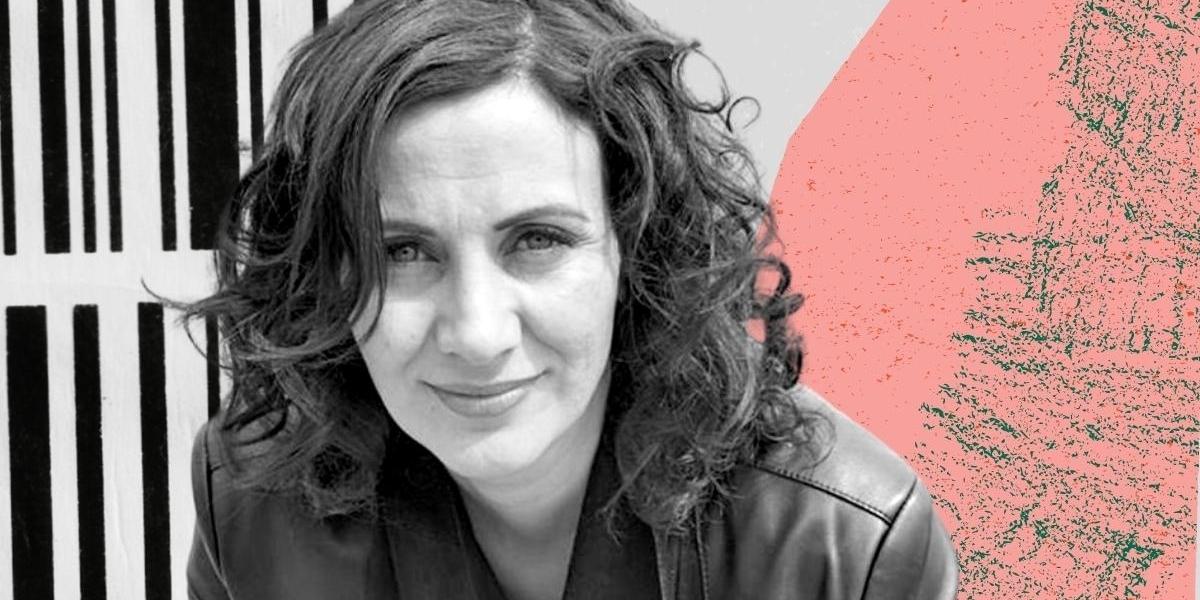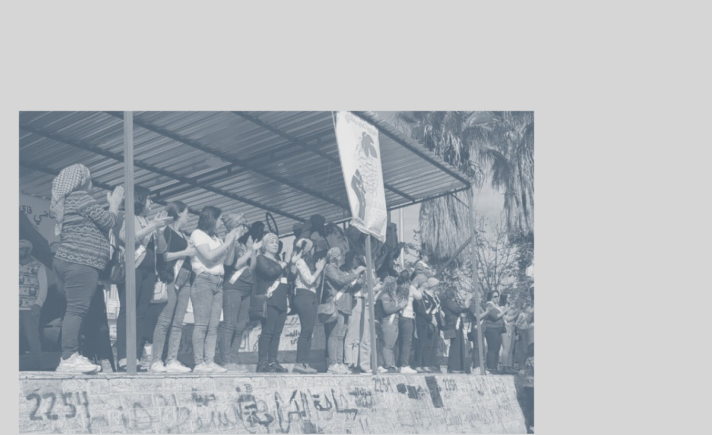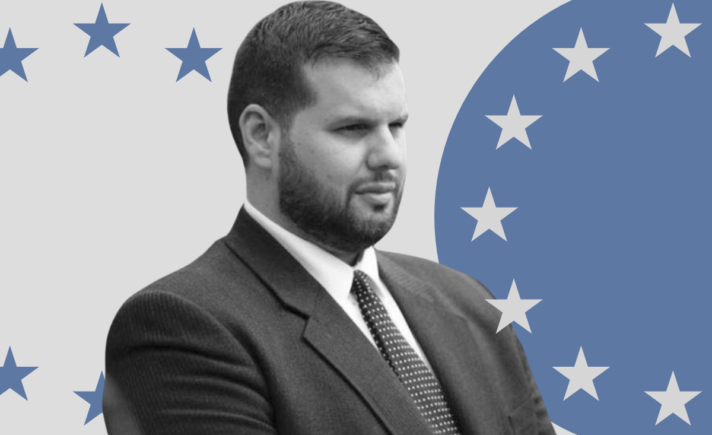Maha Haj doesn’t remember the exact moment she thought of the idea that later led to Mediterranean Fever, her second feature-length film which recently won the Best Screenplay award at Cannes Film Festival’s Un Certain Regard section. She knows it was about five years ago.
“Next time I want to write a film, I’ll make sure to write down the date, place, time and feeling of the moment I first came to an idea,” she tells me laughingly, “because I know I will be expected to answer this question.”
We are sitting down by the titular Mediterranean, although in Cannes, far from Haifa, where her film is set and where she still lives. We speak about her new film, her literary and cinematic influences and how she sees her own art and process.
The film is set around the unlikely friendship of two men, Walid and Jalal, ably played by Amar Hlehel and Ashraf Farah. Having quit his job in banking, Walid stays at home, trying to write a novel while regularly seeing a therapist for his deep depression. Jalal, who meets Walid when he moves into his building, is seemingly involved in something of a ‘gangster life.’ What they have in common is taking care of the kids and the house while their wives hold down jobs and pay the bills.
For a filmmaker from the Middle East, not least Palestine, there is often a rush for immediate political interpretation of films. This reflects the sad fact that many more seem to care about directly political matters than works of art with their own intellectual— and indeed political — sensibilities. Haj’s debut, Personal Affairs (2016), story of a Palestinian family dispersed between Nazareth, the West Bank and Europe, faced similar questions.
There is indeed quite a bit of direct politics in the Mediterranean Fever although many seem to miss it. Many initial reviews focused on the film’s mental health theme and its pioneering display of an Arab man seeking therapy. Screen magazine called it a “gentle drama about depression and life choices.” At the same time, Haj’s dedication of the film to slain Palestinian journalist Shireen Abu Akleh quickly made headlines in the Israeli press.
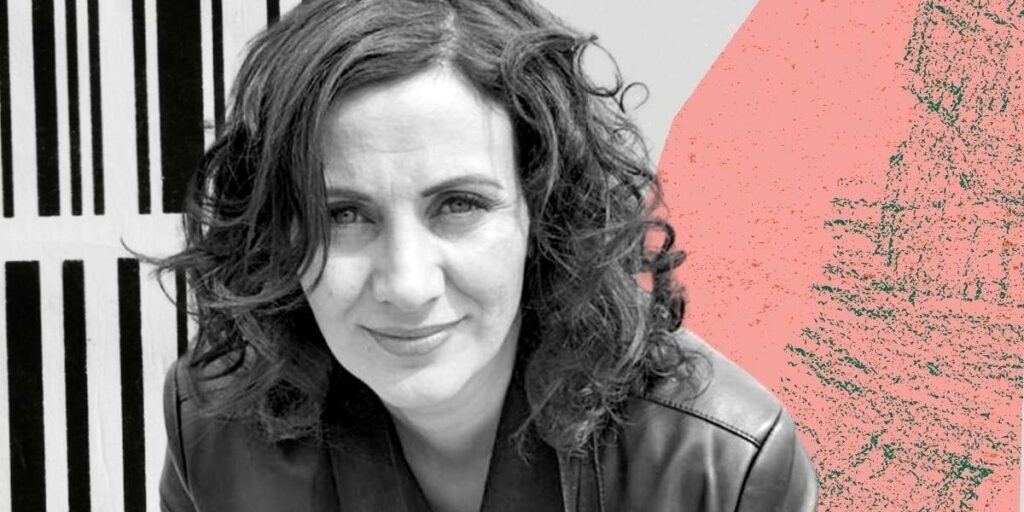
But the film’s true political strength comes at deeper level: In how its profound sense of hopelessness and despair reflects the state of the Middle East of 2022 and the prolonged occupation of Palestine.
“The film has something to do with the atmosphere we live in,” Maha tells me. “The Middle East, the occupation, the feeling of frustration, imprisonment. It leads one to be so depressed.”
“What does Walid stand for?” She muses. “Maybe you can read it as depression of a nation, a collective depression, not only of one character.”
As Walid sits down to write his novel, barely getting a word in, he is surrounded by portraits of the greats of Palestinian literature: Ghassan Kanafani, Mahmoud Darwish, Fadwa Tuqan and Samih al-Qasim.
“They are right behind him, looking down on him and over his shoulder,” Maha says. “He dreams to become one of them that gives him more frustration and more depression.”
Walid’s frustration shows itself throughout: Where Jalal makes fun of him for caring too much about Palestine and Land Day; where his son’s school teacher introduces Jerusalem as the capital of Israel; and when he has to put down ‘religion’ in a medical form. (‘Write down, my religion is Palestinian,’ he says, in a dialogue we can allow ourselves to compare with Mahmoud Darwish’s historic poem ‘Write down, I am an Arab.’)
With her energetic hand motions, a hopeful chuckle and friendly demeanor, Maha Haj might not strike you as a chronicler of depression. But the film’s ingenuity and power comes from reflecting a deep sense of societal despair without vacuous feel-good touches; and without being on the nose or forced.
“I definitely don’t see any hope,” she tells me. “I would love to be a little more optimistic. Where? I can’t be that naive. That darkness you see in the film is my vision of Palestine and of the Middle East in general. It’s something very sad. I wish I could see a glimpse of hope but I can’t.”
This is also reflected in how she choses to narrate her city, Haifa. With a population that’s 10 percent Arab and 25 percent Russian-speaking, Haifa is often celebrated as a city of Arab-Jewish coexistence but the Mediterranean Fever takes place entirely in Arabic except for a short visit to a Jewish doctor by Walid and his son (even she is called ‘Russian’ by the family who discourages the kids from speaking Hebrew at home.)
“I just wanted to focus on us,” says Maha, “I didn’t want to focus on coexistence. If you ask me what city has the most coexistence between Arabs and Jews, it really is Haifa. Even when there were troubles last year, in May 2021, it came not from Jewish citizens of Haifa but those from other parts.”
But the film wants to take a deeper and longer look at Haifa and her history. Instead of celebrating the famously buoyant seasides restaurants, where many Palestinians and Jewish Israelis are known to mingle, Haj wants us to think of the deep sadness in a city which lost thousands of its Palestinians during the Nakba of 1948.
The building where Jalal and Walid live in speaks to this longer history.
“This building is 150 years old, from the Ottoman era, long before the occupation,” she says. “I am really amazed that it wasn’t destroyed. It stood there, so beautiful and majestic. I chose this place and I also focus on the [now, Jewish-majority] Wadi Salib, Valley of the Cross, where many Palestinians were kicked out in 1948 and long dreamed of coming back.”
“I wanted to show this Haifa,” Maha tells me. “Not Haifa of coexistence, or the touristy Haifa with the harbour, the fun parts and the bars .Yes Haifa is a very fun and beautiful city. But this is also Walid’s city, my city, my very sad city and it becomes sadder and sadder towards the end of the film.”
But the film doesn’t force-feed you any of this. As with the best of art, the core message remains subtle and comes organically from the story itself.
This is not surprising when we hear about Maha’s artistic process. Like any good storyteller, she started crafting her story based on its own inner truth, not an intended messaging.
Clearly frustrated with questions about why the film focuses on two men, she seems delighted when I ask about the women of the film who, even if not on screen much, are lurking behind as subjects who make possible the lives of their families.
“They ask me why I made a film about two men?” She says. “Why not? Because I am a woman, I can’t do that?”
Speaking of Walid and Jalal, she says: “They are very unique in their character. They are not macho men. Even if Jalal is very outgoing and bombastic and has an affair going on on the side. They are both very fragile and sensitive; you can break them easily.”

“Wild imaginations” and communist family
We also speak about her background.
“I am influenced by everything I read: Arabic literature, English, French, Russian, Persian,” Maha tells me. “You absorb all this amazing and beautiful cultures. When you write you have it all in you, you write from that richness, it doesn’t come from void.”
About her cinematic influences, she says: “I love Iranian films. I adore them. One of my favorite film ever is A Separation by Asghar Farhadi. I think it’s a masterpiece for all times; and Of course, [Iranian director Abbas] Kiarostami. I also love French cinema, Japanese cinema, Coen Brothers, Elia Suleiman (I did my first film on a big set with him when I was the set director for the Time That Remains), Roy Anderson and Ingmar Begrman.”
She is also clear that she doesn’t believe in old-school ideas about ‘committed art.’
“I don’t think that because I am an artist, I have a responsibility to my nation or my country,” she says boldly “It doesn’t work that way.”
“Let’s be honest. As an artist, when you write, you write for yourself,” she adds. “I don’t think the nightingale sings because he wants the other birds to hear! He sings because it’s his purpose in life.”
“When I am writing a screenplay, even if I know there is no producer in the whole world that would do it, I’d still write it, because of my own passion,” she says.
Nevertheless, once more, the social and literary background of her upbringing is not hard to see. Born to a family of socialist activists in Nazareth, long a stronghold of the Communist Party of Israel, Maha grew up in the world of Marxist international sensibilities that emphasized the love of art and its place in human life.
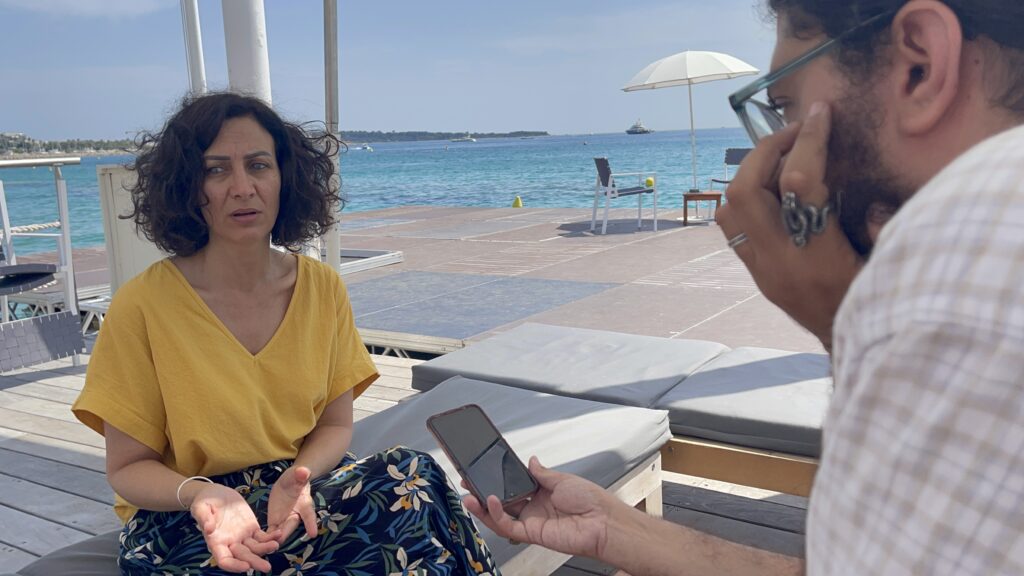
“I didn’t go to film school or study screen writing,” she tells me. “But as Walid says in the film, I have wild imaginations. I think it’s because of my mother reading books and stories since I was 2. Although I came very late to it; I made my first film when I was 45.”
Speaking of her mother, Maha says: “She was reading me Russian communist literature. My father sadly died before he could even watch Personal Affairs. I come from not only a communist house (although today less than before) but one which was very politicized and very patriotic. That’s how I had my love for Palestine, my understanding, my passion and compassion for my nation. It was all in my upbringing.”
She is amongst a generation of Palestinian citizens of Israel who are proud of their Palestinian identity and have worked hard to establish it; so much so that they refuse make films produced by Israel and funded by Israeli institutions. Under the long years of the Netanyahu government, Israel’s Ministry of Culture often didn’t make thing easier by political censorship and limiting Palestinian content in films backed by it. Two of Israel’s successful films at Cannes 2021 ended up highlighting this challenging reality. Nadav Lapid’s Ahed’s Knee, which co-won the Jury Prize at Cannes, featured a Jewish Israeli filmmaker struggling with the country’s cultural institutions; and in the Un Certan Regard section, the Palestinian cast and crew of Eran Kolirin’s Let It Be Morning, based on a story by Darwish, refused to walk for the film’s red carpet at Cannes due its categorization as a film from ‘Israel.’ (Israel introduced the film as its Oscar entry last year.)
Haj’s first film was also an Israeli production but she is clear that this wasn’t her preference. “I had no choice,” she says. The film went on to win the top prize at the Haifa Film Festival. About her identity, she is equally clear: “I identify as Palestinian, not Arab Israeli. What is that even?”
Now, with the help of International funding, she’s been able to make a film set in Haifa that’s a Palestinian production, the name of Palestine proudly being displayed in Cannes as the film’s only producer.
“It started by me meeting two French producers, Juliette Lepoutre and Pierre Menahem, in the Rotterdam Film Festival in Holland,” she says. “I pitched idea to them with my Palestinian producer Baher Agbariya. They loved it. I went back home and started to write and develop.”
She was ultimately able to also get support from German, Cypriot and Qatari producers so that her Palestinian film is also quite diasporic and international.
Seemingly tireless, Maha is already thinking of the next project. “I have an idea for a film and I want to write it,” she says. “I can’t wait!” She can’t tell us much for now except that it will be “shot between Palestine and Germany.”
As for her future, she seeks collaboration with Arab and European productions and will continue her arthouse style.
“It’s very hard to make a living out of it,” she says. “Sometimes you need to do other things that you like less. But if I can fo a film every four years, I am satisfied.”
Despite the unapologetically tragic vista that emerges from Mediterranean Fever, Haj gives us hope for the continued power of Arab and Palestinian cinema.


